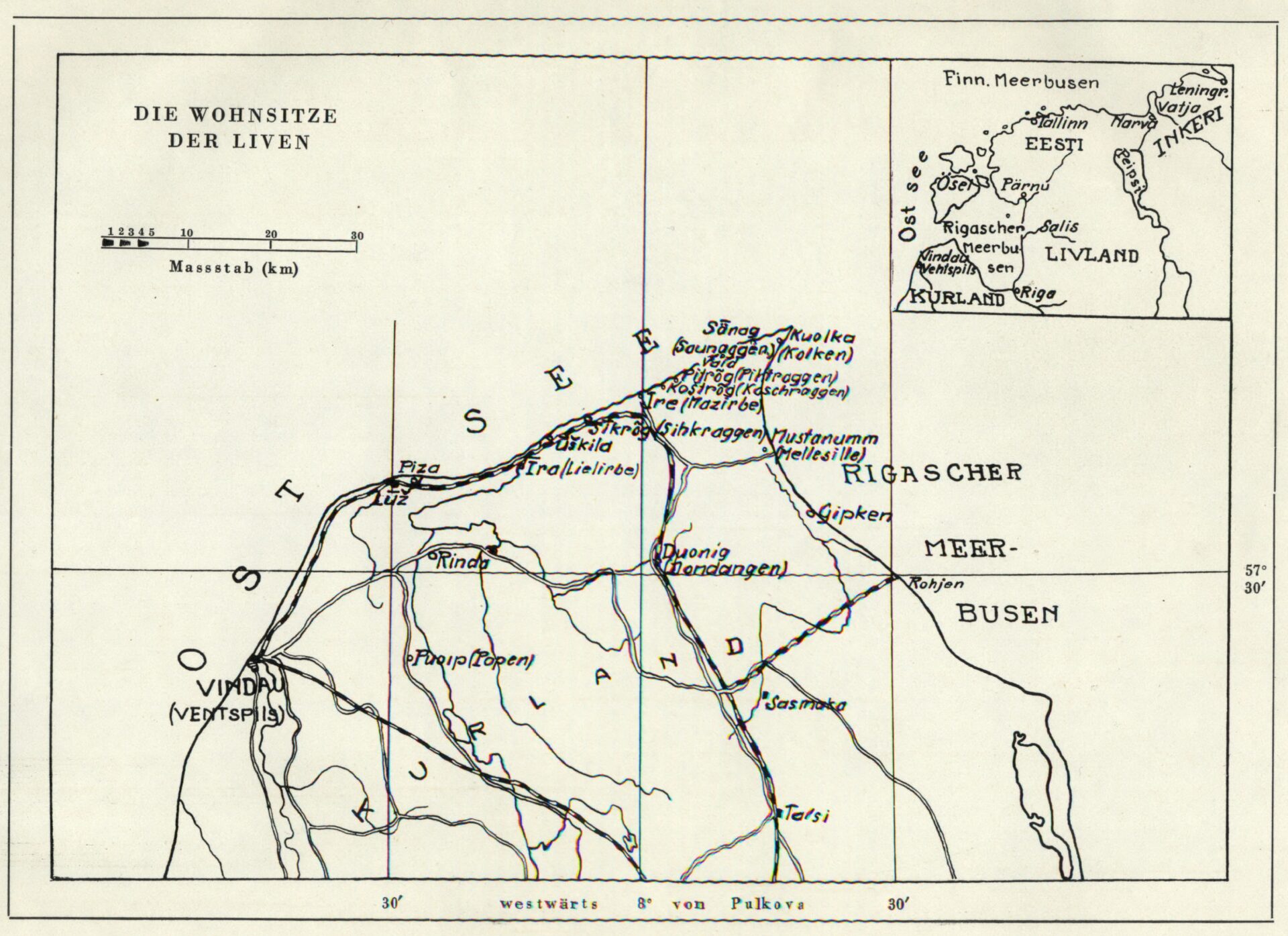
Livonian
8.2. Gramatik / Grammar
Passives and impersonals
Livonian does not have the synthetic impersonal form typical of the Finnic languages (cf., e.g., Estonian tehakse : tehti, minnakse : mindi, etc.). Instead, a construction consisting of the auxiliary verb vȱlda ’to be’, sǭdõ ’to get’, or līdõ ’to be (in the future)’ and the passive past participle of the main verb is used. The temporal meaning depends on the tense of the auxiliary verb as well as on the broader context. In the past tense, the auxiliary verb is in the past tense, e.g., Ta sai freilenõks nuttõd ’She got called a miss’, Tä’m leja vȯ’ļ ǭ’võdõks kattõd ’Her flesh was covered with sores’, in the present or future tense, it is in the present tense (the interpretation also depends on the context), e.g., Ne sǭbõd ibūkstõks nuttõd ’They are called hair’, Se tīe sǭb tī’edõd ’This work will get done’.
Good to know. It is characteristic of the aforementioned constructions for the agent to be removed from subject position. Expressing the agent as some other part of the sentence, however, is not generally expected in Livonian. Only in rare cases is the agent expressed with the elative or a postpositional phrase, e.g., Ne vȯ’ļtõ brūdganāst kutstõd. ’They were invited by the groom’,Tämā sǭb kēnig kä’dst jarā taptõd. ’He was killed by the king’.
If the subject is omitted, the 3rd person singular or plural verb form can be understood as an impersonal, e.g., vietā kāndiz ’(one) carried water’, Būoḑ tīeb vāldiņ ūd nädīļ ’(One) will open the shop next week’. Compound past tense forms can also be understood as impersonals, e.g., Ikškõrd ātõ lǟ’nõd lapstā rištõm ’(They) once had gone to baptize a child’. In such instances, it is common for the object to retain its case (cf. vietā kāndiz ’(one) carried water’ and ta kāndiz vietā ’s/he carried water’). By contrast, in the passive constructions described above, it is certainly possible for the object to retain its case, but it is more common for the object of an active clause to become the subject of a passive clause (X nutīz tǟnda freilenõks ‘X called her a miss’ > Ta sai freilenõks nuttõd ‘She got called a miss’).


